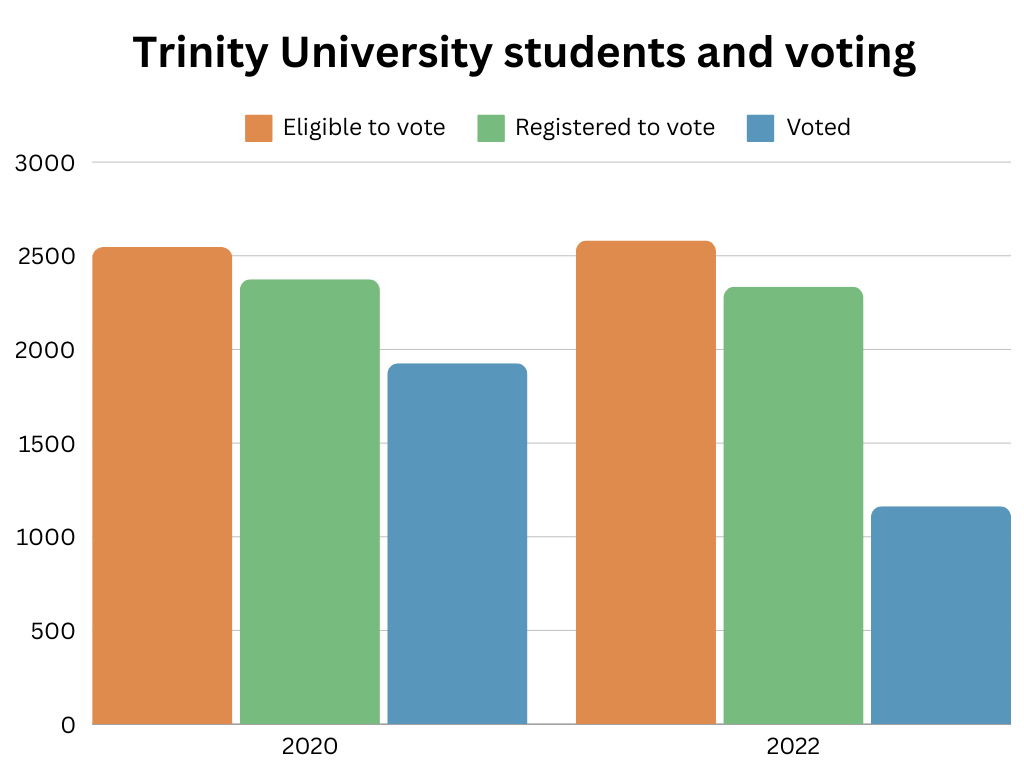illustration by Gracen Hoyle
In almost every single class I’ve had over the past three weeks, each of my professors has addressed how overwhelmed and drained we are — students and faculty alike. While we all can acknowledge this feeling and sympathize with one another due to the burden that it introduces to out everyday lives, we continue to face project deadlines, exams and work.
For me, it’s been one thing to struggle myself with course material or overwhelming demands, but to watch all of my friends and peers feel the same brings on a different kind of ache, a collective one at that. There’s no one solution to this feeling, and finding ways to cope with the stress and demands that many, if not all, of us are facing is far easier said than done. Over the past two months, no amount of sleep has felt like enough, nor has any amount of time spent trying to relax helped much. The entire time, all that I can think about is the work that waits for me and how little time I have to complete it all.
Although it may not always be successful, it’s still important to actively try and work time for rest into your daily schedule. Things are not normal right now, and it’s okay to step back from your work for a bit to take a deep breath — we’re literally living in a pandemic, a time when our physical and mental health are of the utmost importance. While it’s far easier said than done, as many of us are juggling our coursework with jobs, internships and other responsibilities, it’s essential for our wellbeing that we rest.
One aspect of this rest? Adapting the measures of success that we use to evaluate our pursuits and work to fit the obstacles introduced by our new learning and work environments. Regardless of whether you are living on-campus, off-campus in San Antonio or somewhere else entirely, the environment in which you are expected to learn and be productive is drastically different from that found in a pre-pandemic semester. To expect yourself to perform at the same level in virtual learning that you did when on-campus is unrealistic.
For many of us, these new environments mean being easily interrupted by the conflicting schedules of our roommates or families, struggling to focus when staring at screens all day and sharing a workspace or resources with others that are not always accessible. Why should we expect ourselves to be writing mind-blowing papers or acing every exam while also facing unexpected challenges and stress?
At a time when things are uncertain and we are lacking the mental stimulation provided by social interactions, we’re not always going to be able to perform at the level once expected of us. While this may not be the case for everyone — props to you if you’re doing just fine — it is a harsh reality for many of us, especially those who have struggled with mental and physical health challenges even prior to the pandemic. You wouldn’t expect anyone else to deliver their peak performance during a time of struggle, so why should you do that to yourself?
Despite having struggled for weeks now with finding the energy to be productive despite snowballing responsibilities, it wasn’t until I was sitting at my laptop, writing out my ideal spring schedule on my notepad and legitimizing taking 20 hours, that I realized how harmful these self-ascribed measures of success were. It went against everything I have taught myself over the past decade.
We obviously don’t all share the same luxuries as one another, including whether or not we can afford — financially or academically — to not take a full course-load next semester, but as we approach the time for spring 2021 course registration, I encourage everyone to consider whether or not what you’re doing is best for you. Try to craft a schedule that allows you to work time for rest into each of your days, and that doesn’t demand the world of you. If you’ve been taking 17-18 course hours this semester and can afford to take 13-15 next semester, take it into serious consideration because it is unlikely that the demands and environment of next semester will look very different from this one.






